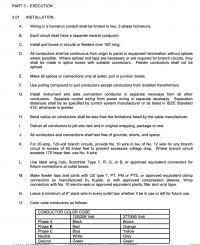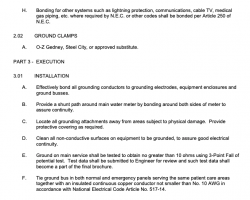Old case law here was that everything was to be to approved plans and specs, but our courts have deviated from this position as it moves inspectors into more of a role of quality assurance rather than confirming compliance with the code. Specs are ultimately a contract between the owner and the contractor. An agreement on how the work will be done. Where government officials are not party to the agreement, they have no legal standing to enforce the agreement.
I inspect to the building code and any acts and local by-laws that I am empowered to enforce. Nothing more, nothing less.
If the health department has a requirement, hopefully the contractor is aware. If they are not, I hope the RDP or health inspector catches it early in construction. Ultimately, it is the contractor's problem for not reading being aware of the requirements or reading the specs. Education is expensive.
Here, enforcement of construction above code is the responsibility of the owner, or owner's representative.



